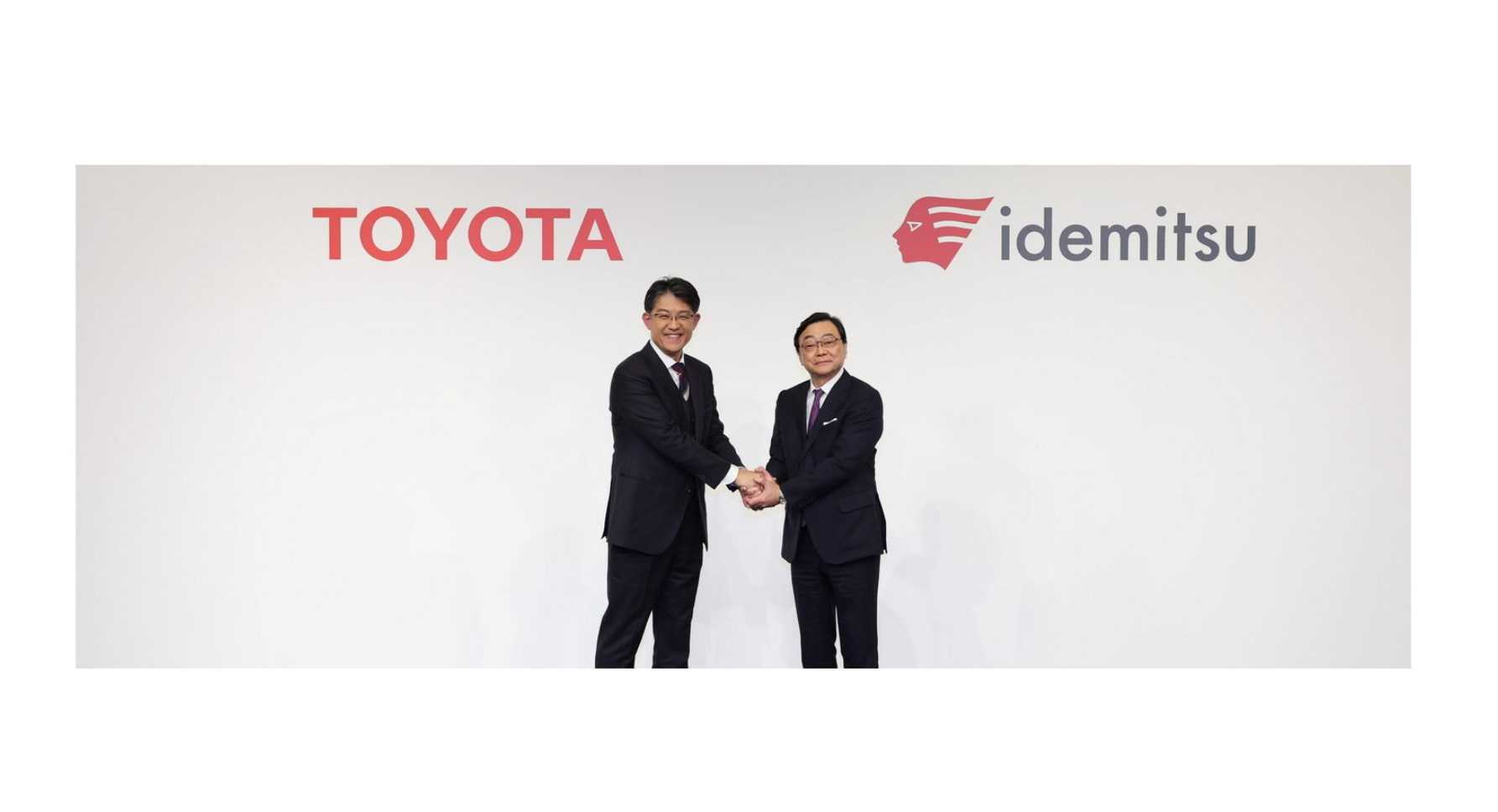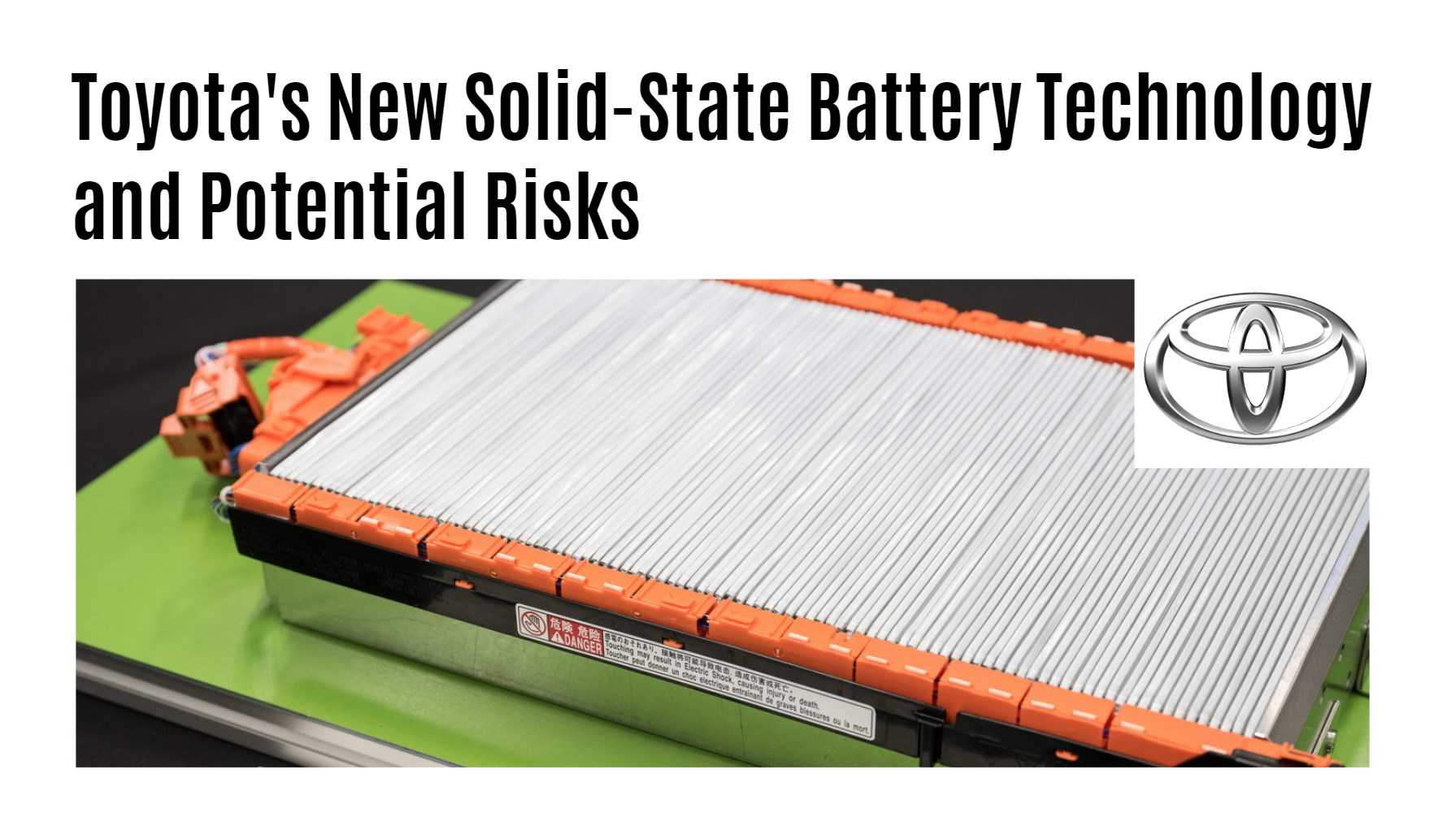Get ready to rev up your knowledge on the latest innovation in electric vehicle technology! Toyota is leading the charge with its groundbreaking solid-state battery technology, set to revolutionize the way we power our cars. Buckle up as we dive into what makes these batteries a game-changer for sustainable transportation.
What sets this battery technology apart from traditional lithium-ion batteries?
Toyota’s new solid-state battery technology represents a significant leap forward in the world of electric vehicles. What makes this technology stand out from traditional lithium-ion batteries is its unique composition and design. Unlike lithium-ion batteries that use liquid electrolytes, solid-state batteries utilize solid electrolytes, which enhance safety and energy density.
The solid-state design eliminates the risk of leakage or combustion often associated with liquid electrolytes, making it a safer option for electric vehicle manufacturers. Additionally, these batteries offer faster charging times and longer driving ranges compared to conventional lithium-ion counterparts.
Moreover, the durability and stability of solid-state batteries make them more reliable over time, reducing maintenance costs for electric vehicle owners. With their potential to revolutionize the EV industry by addressing key limitations of current battery technologies, Toyota’s solid-state batteries are truly paving the way for a greener and more sustainable future on our roads.
Benefits of solid-state batteries for electric vehicles
Toyota’s new solid-state battery technology brings a wave of benefits for electric vehicles. These innovative batteries offer higher energy density, meaning they can store more energy in a smaller space compared to traditional lithium-ion batteries. This leads to increased driving range and improved overall performance.
Moreover, solid-state batteries are safer as they are less prone to overheating and thermal runaway due to their stable chemical composition. This enhanced safety feature provides peace of mind for both manufacturers and consumers alike.
Additionally, these batteries have a longer lifespan than conventional lithium-ion batteries, reducing the frequency of replacements and lowering maintenance costs for electric vehicle owners. The durability of solid-state batteries also contributes to the sustainability aspect of EVs by minimizing waste generated from battery disposal.
In essence, the benefits of Toyota’s solid-state batteries pave the way for a more efficient, reliable, and eco-friendly future in the realm of electric vehicles.
Potential risks and challenges associated with the technology
As with any new technology, Toyota’s solid-state batteries come with their own set of potential risks and challenges. One main concern is the cost associated with manufacturing these advanced batteries on a large scale. Developing a reliable production process that keeps costs down will be crucial for the widespread adoption of this technology.
Another challenge lies in ensuring the safety and durability of solid-state batteries over time. While they offer higher energy density and faster charging capabilities, there are still questions around how well these batteries will perform in real-world conditions, especially in extreme temperatures or during rapid charging cycles.
Additionally, the scalability of production facilities to meet increasing demand for electric vehicles equipped with solid-state batteries poses a significant hurdle. Adapting existing infrastructure to accommodate these new battery technologies efficiently will require substantial investment and planning from automakers like Toyota.
Furthermore, there are concerns about the environmental impact of extracting raw materials needed for solid-state batteries. Ensuring responsible sourcing practices and developing recycling methods for used batteries will be essential as the automotive industry transitions towards more sustainable energy solutions.
Comparison with other emerging battery technologies in the market
When it comes to emerging battery technologies in the market, solid-state batteries are making a notable entrance. Their promise of enhanced safety, increased energy density, and faster charging times sets them apart from traditional lithium-ion batteries.
In comparison, other emerging technologies like lithium-sulfur and graphene-based batteries also show potential for revolutionizing the electric vehicle industry. Lithium-sulfur batteries offer higher energy density but face challenges with cycle life and stability. On the other hand, graphene-based batteries boast fast charging capabilities but still require further development to become commercially viable.
Each technology has its strengths and limitations, shaping the landscape of sustainable transportation in unique ways. As research continues to advance these technologies, it will be exciting to see how they evolve and contribute to a greener future for mobility worldwide.
Impact on the future of electric vehicles and sustainable transportation
As Toyota’s new solid-state battery technology emerges, the future of electric vehicles is poised for a significant shift. These innovative batteries promise increased energy density, faster charging times, and enhanced safety features compared to traditional lithium-ion batteries.
The potential impact on sustainable transportation is vast. With more efficient batteries powering electric vehicles, we can reduce our reliance on fossil fuels and lower greenhouse gas emissions. This could lead to cleaner air quality in cities and a healthier environment for all.
Moreover, the development of solid-state batteries may drive down costs associated with electric vehicle production over time. As these technologies become more mainstream, we may see a broader adoption of electric vehicles across various sectors beyond just personal transportation.
The advancements in solid-state battery technology have the potential to reshape the landscape of electric vehicles and accelerate our transition towards a more sustainable future in transportation.

Conclusion: The future of Toyota’s solid-state batteries and its potential impact on the automotive industry
As Toyota continues to make strides in developing solid-state battery technology, the future looks promising for electric vehicles and sustainable transportation. The potential impact of these innovative batteries on the automotive industry is immense, offering improved performance, faster charging times, increased safety, and enhanced energy density.
With ongoing research and development efforts, Toyota aims to overcome any existing challenges associated with solid-state batteries and bring them to mass production. As more automakers follow suit in exploring this technology, we can expect a shift towards cleaner and more efficient electric vehicles on the roads.
The evolution of Toyota’s solid-state batteries signifies a significant step towards reducing carbon emissions, combating climate change, and revolutionizing the way we power our vehicles. It paves the way for a greener future where electric mobility becomes increasingly accessible and widespread.
In conclusion: Toyota’s advancements in solid-state battery technology have the potential to reshape the automotive landscape for years to come, driving us towards a more sustainable future.




